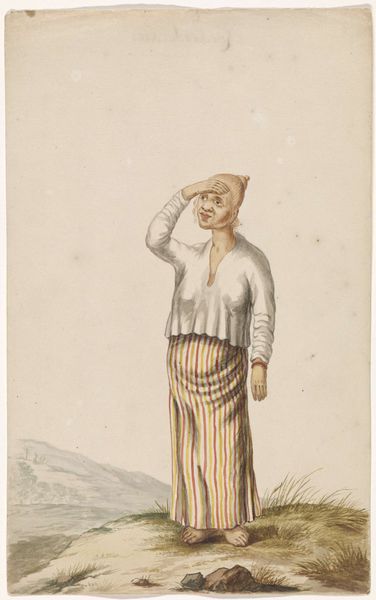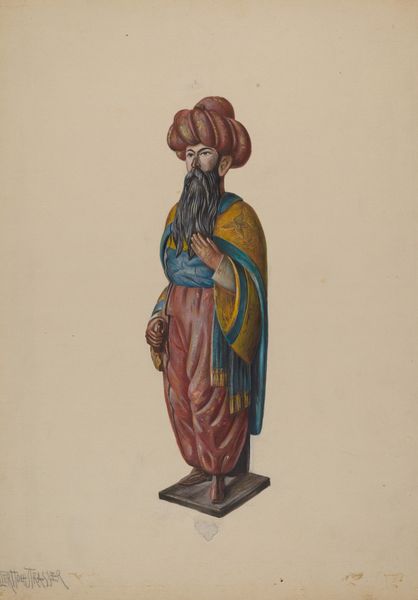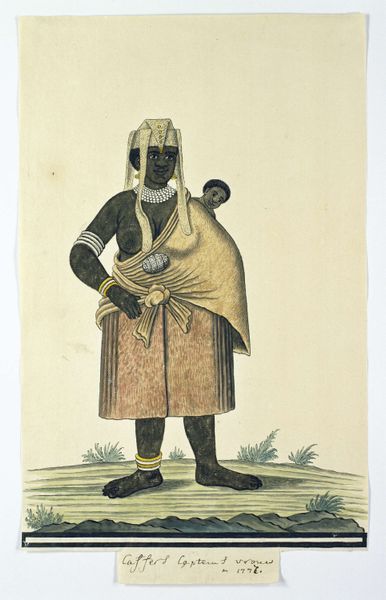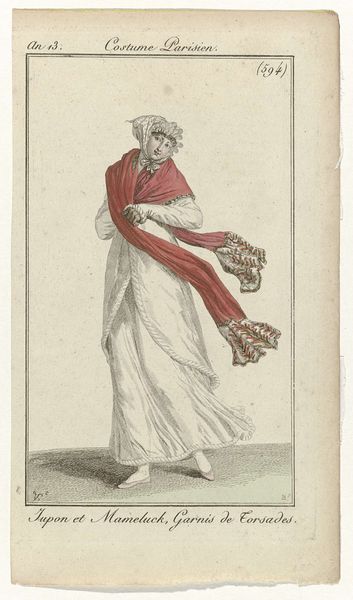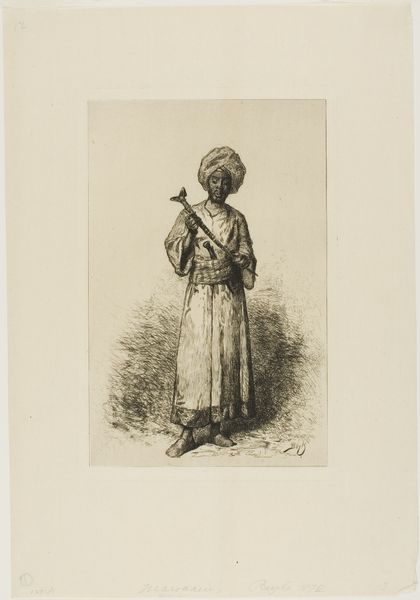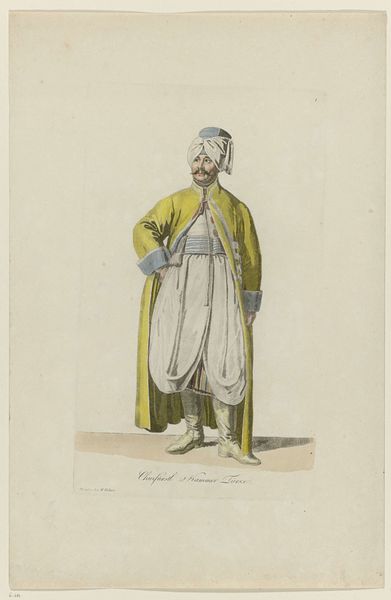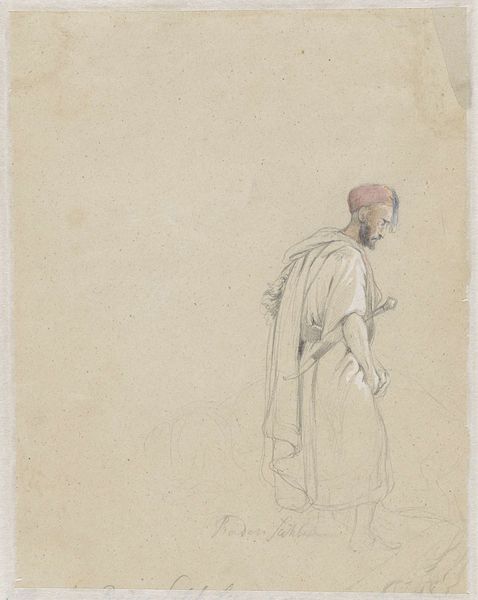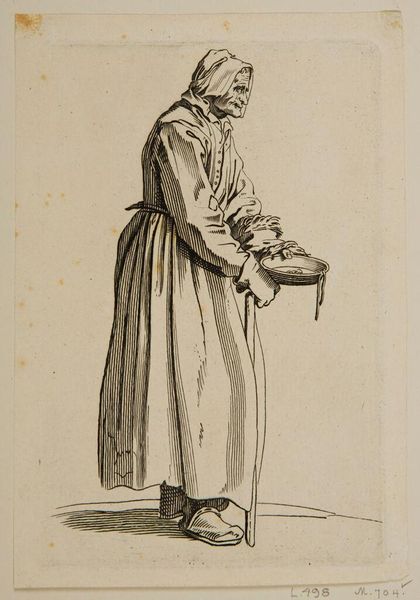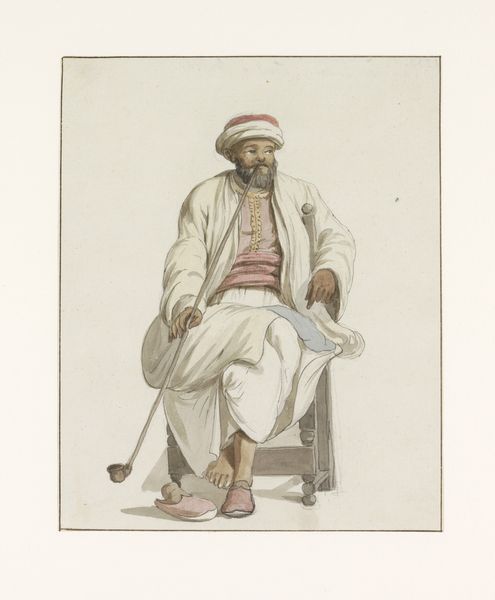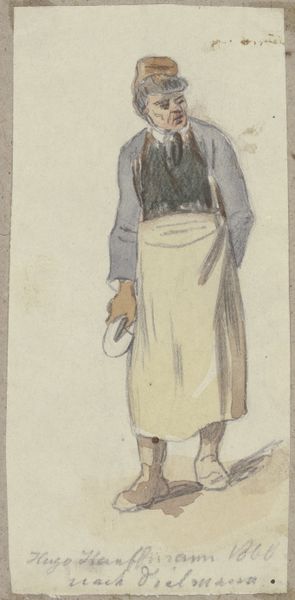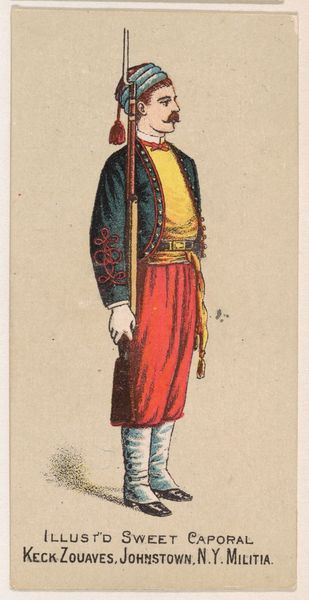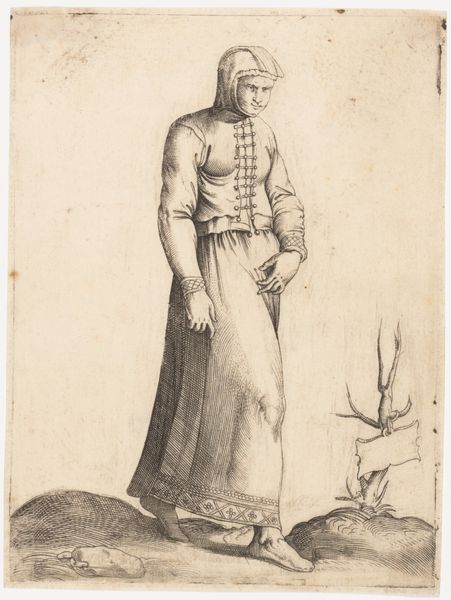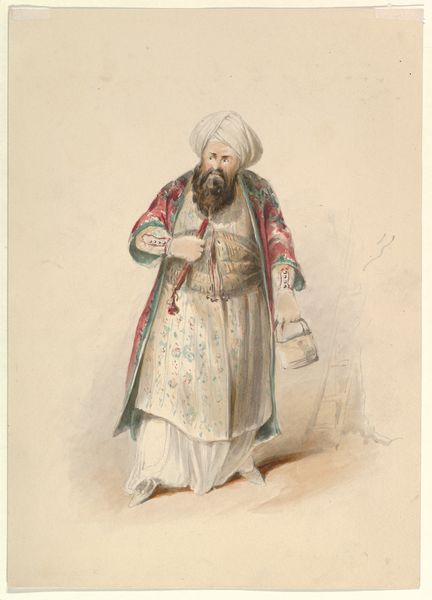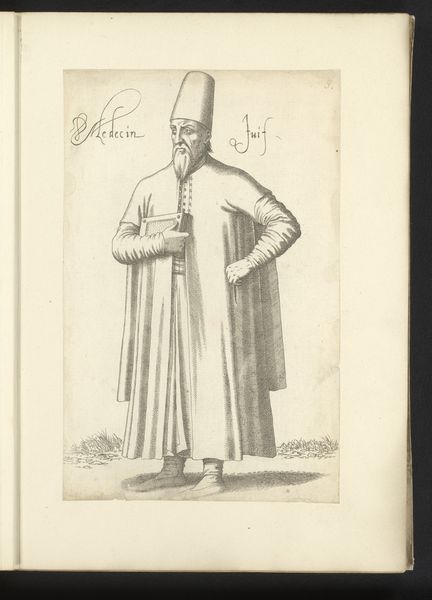
#
imaginative character sketch
#
toned paper
#
light pencil work
#
pencil sketch
#
caricature
#
personal sketchbook
#
coloured pencil
#
watercolour bleed
#
watercolour illustration
#
watercolor
Dimensions: height 320 mm, width 200 mm
Copyright: Rijks Museum: Open Domain
Editor: So, this is "Een Pers," a watercolor and pencil sketch, likely made between 1675 and 1725, by an anonymous artist. I’m struck by the figure’s elaborate turban and striped robe. How would you interpret this work? Curator: For me, the key here is to consider the social context of the production and consumption of images like these. Who made it, for whom, and under what circumstances? These types of drawings were often commissioned during periods of colonial expansion. What might the materiality—the paper, pigments, and the very act of drawing—tell us about that exchange? Editor: That's interesting. I hadn't thought about the materials themselves carrying that kind of weight. Could you elaborate on that a bit more? Curator: Think about it: where did the paper come from? The pigments? Was this artist commissioned, perhaps by someone involved in trade or colonial administration, to create an image of an exoticized "other?" The drawing isn't just a depiction, it's a product of a specific set of power dynamics and labor practices. Editor: So, you’re saying the image isn't just *of* a person, but it embodies the economic and social relationships of that time? The means of its production reflect a history of trade, labor, and possibly even exploitation? Curator: Exactly! Even the "anonymous" attribution speaks volumes. It removes individual authorship, which may downplay the role of the maker and further objectify the subject. By considering all of this, we can see how this image participated in, and perhaps reinforced, specific views on race and power. Editor: That really reframes my understanding. I was initially drawn to the aesthetics, but I now see it as an artifact loaded with complex historical implications. It is an intersection of material, labor, and power. Curator: Precisely. Examining the materials and methods allows us to excavate those deeper layers of meaning. I have learned so much, too.
Comments
No comments
Be the first to comment and join the conversation on the ultimate creative platform.
